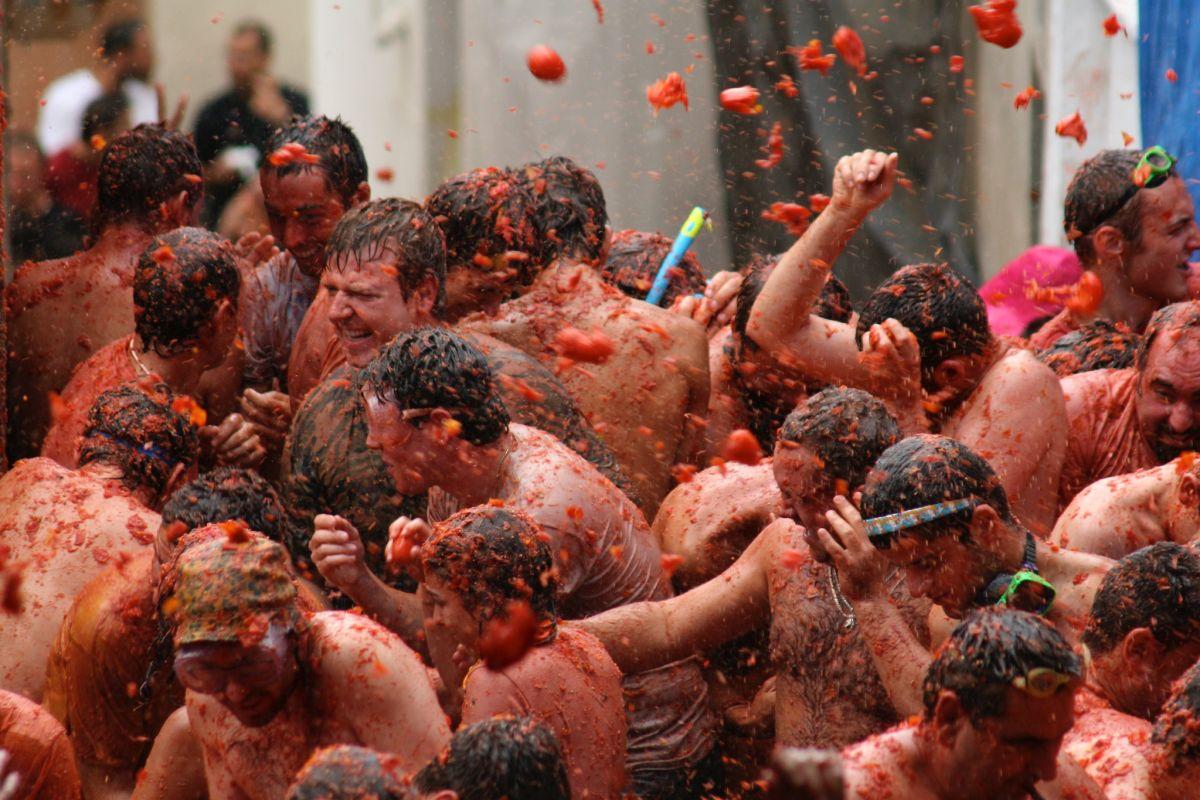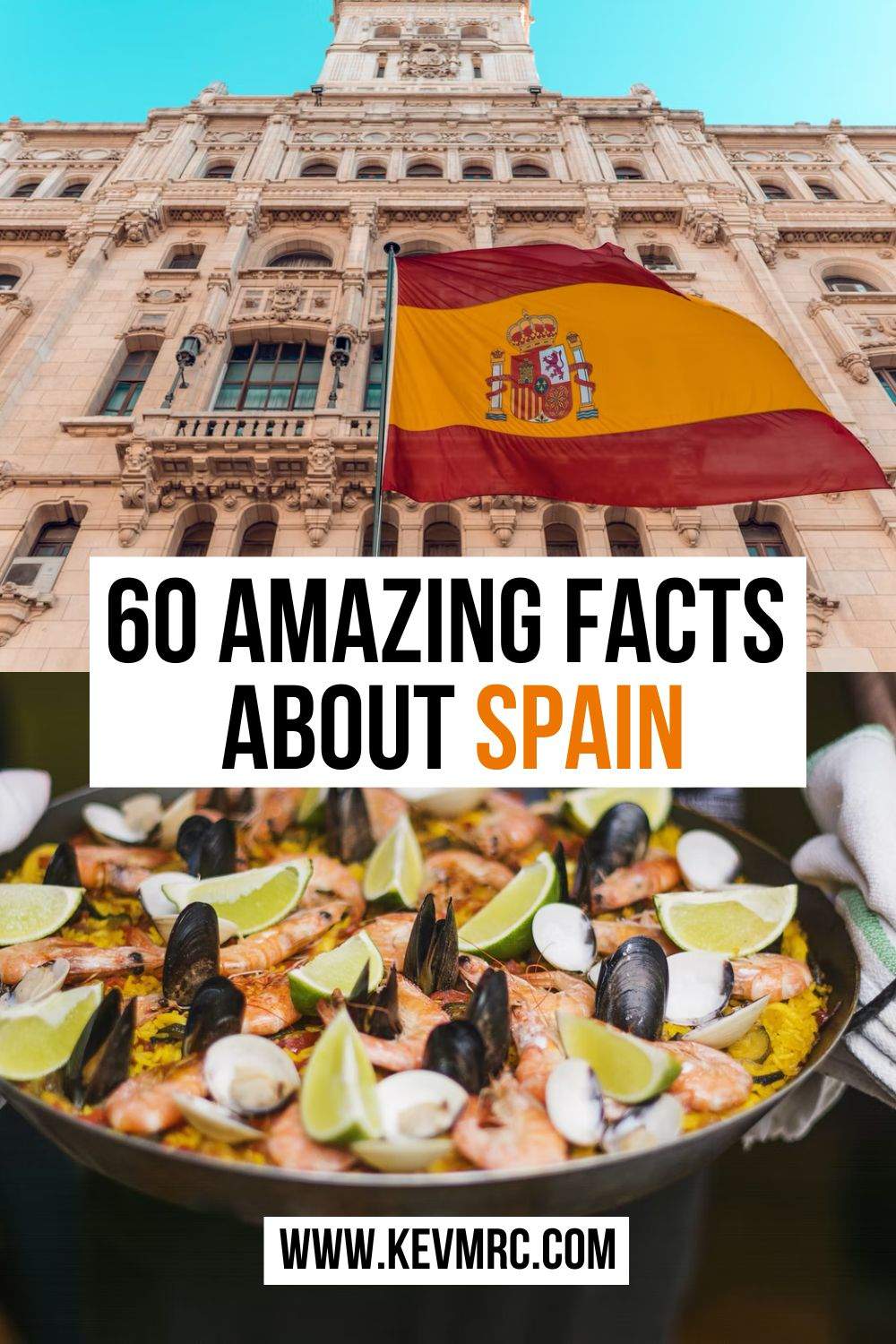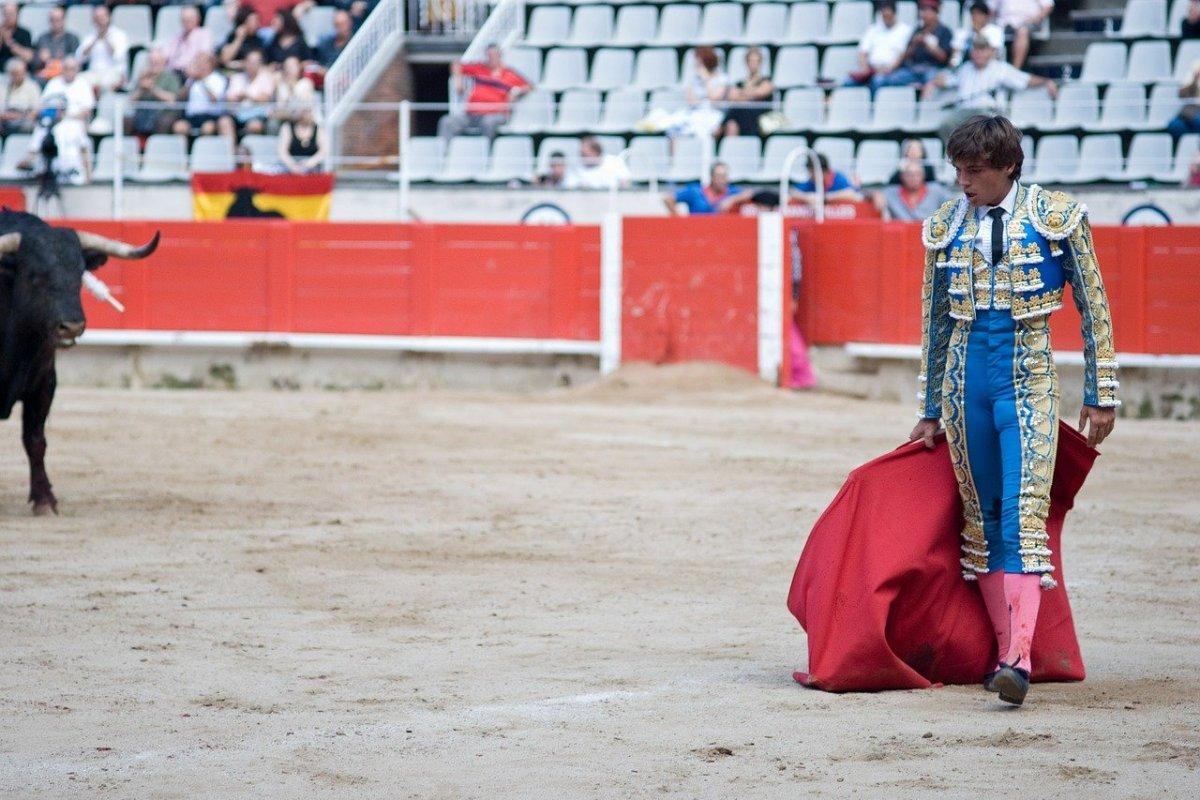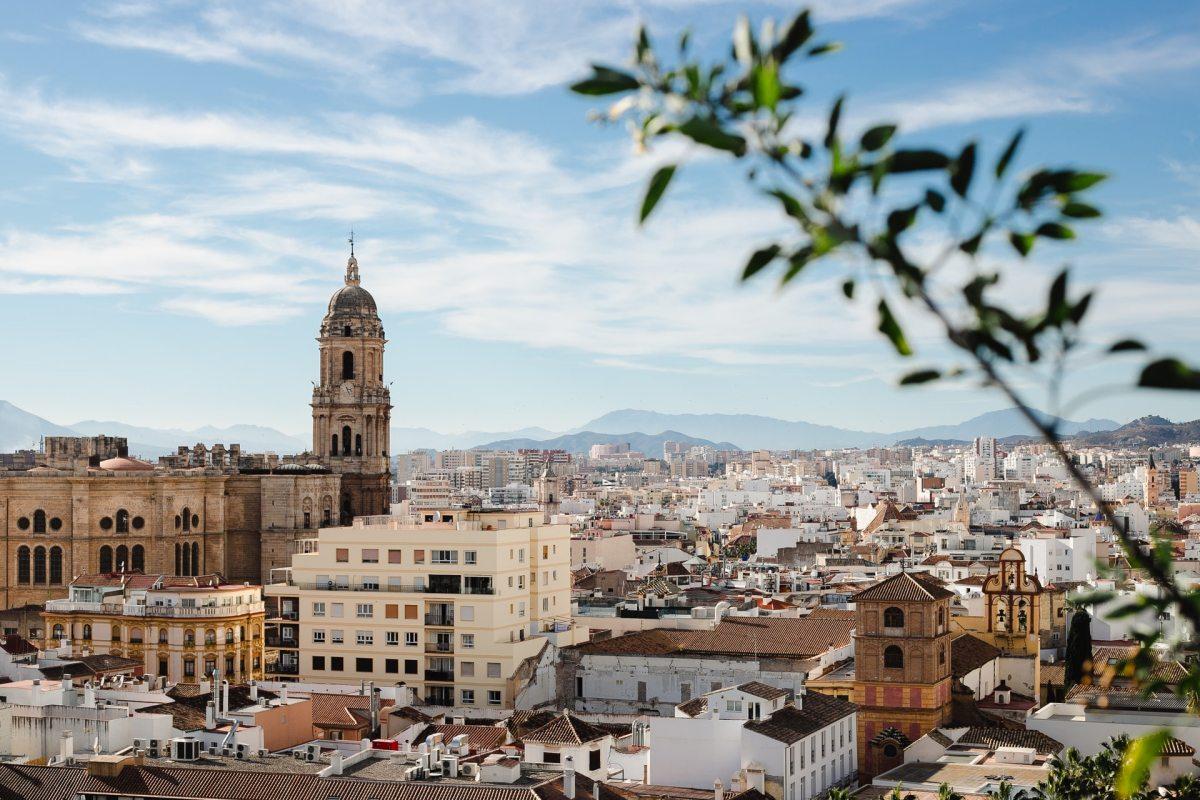60 Interesting Facts About Spain (+ fun Spain facts!)
Looking for some interesting facts about Spain? That’s exactly what you’ll find on this page.
Discover no less than 60 fun Spain facts, covering several topics: history, geography, culture, food, and much, much more.
Let’s dive into these facts right away! 🇪🇸
TABLE OF CONTENTS
Facts on Spain to Learn All About It
Ready to learn all about Spain?
Facts are one of the best ways to learn more about something, and I personally love to read them! I’ve put together for you quite a bit of facts on Spain; I’ve split them in 9 categories:
- The best Spain facts
- Fun facts of Spain
- Spain facts for kids
- Spain culture facts
- facts about Spain history
- Weird facts about Spain
- Geography of Spain facts
- Economic facts about Spain
- General facts of Spain
Let’s dive in straight away with our first category!
The Best Spain Facts
The first part will consist of the most general and interesting facts on Spain you will love to know about either you live in Spain or travel there.
1. Spain is the second biggest country in the European Union
Continental Spain is quite populous, with almost 47 million inhabitants. Most of them live in urban residential areas.
In the largest cities, Madrid, Barcelona, Valencia, and Seville, there are hundreds of thousands of residents, and sometimes several millions. Only counting these, Spain is already ahead in terms of population compared to a lot of other European countries.
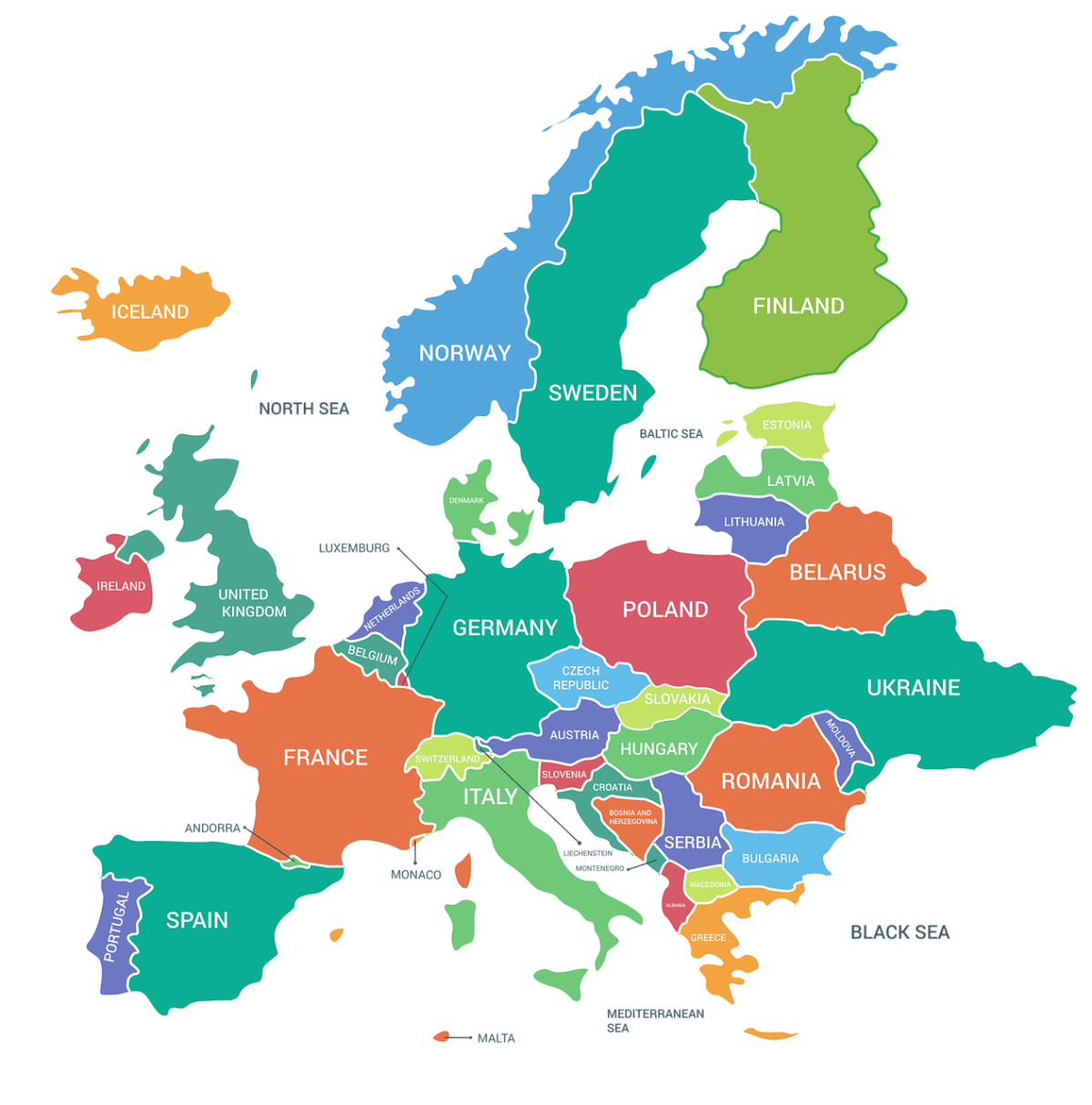
2. More than a third of the world’s olive oil is produced in Spain
A few years ago, in 2016-2017, more than half of the world’s olive oil was produced in Spain. To put that into perspective, just think about the fact that the six next largest producers, Greece, Italy, Turkey, Morocco, Syria and Tunisia produced altogether only 70% of Spain’s olive oil.
Now however, around 35 percent of the world’s olive oil comes from Spain, which is still huge.
3. Football is extremely popular in Spain
You already know it, Spain is home to some of the world’s most famous and successful football clubs, like Real Madrid FC and FC Barcelona. On top of that, the national team is also incredibly successful, having won the World Cup in 2010.
Because of that, Spaniards are huge fans of football and sometimes go crazy about it, especially during El Clásico.
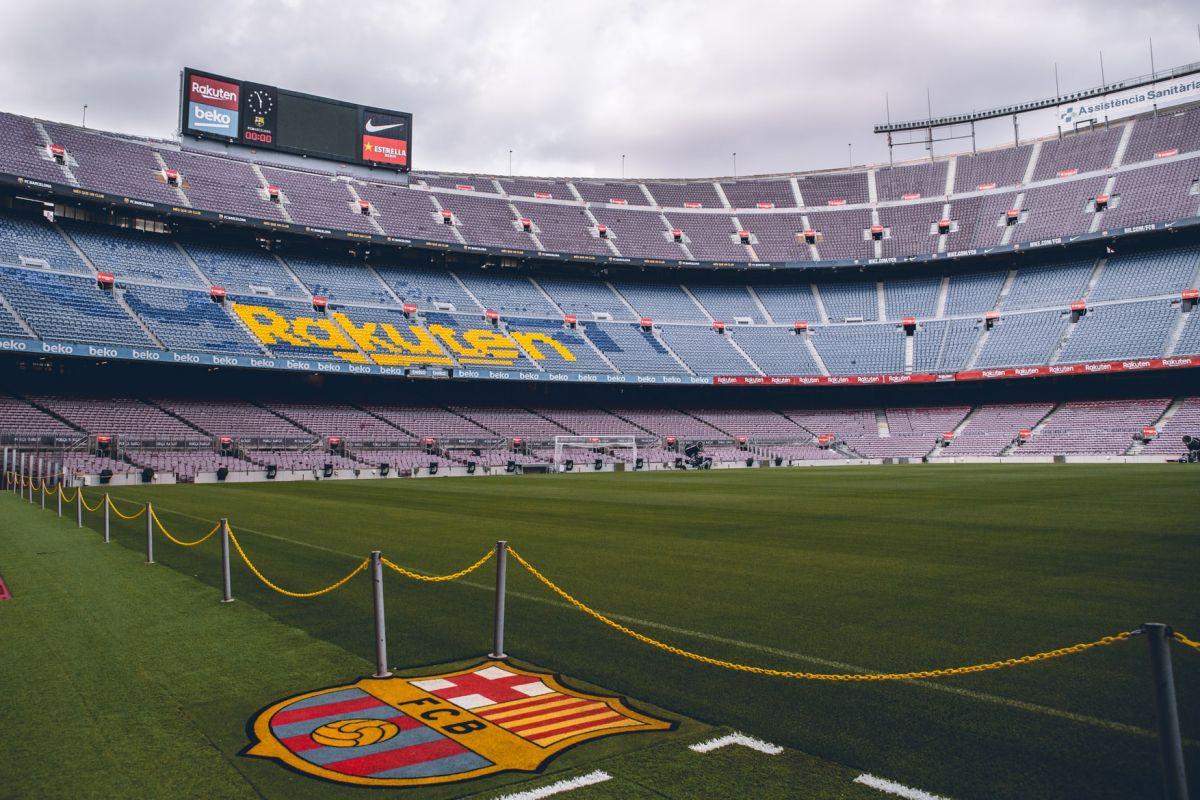
4. The vast majority of Spanish people are Catholic
There were lots of different religions and cultures in Spain throughout the centuries. Arguably, the Moors have had the most impact on the country in terms of architecture and agriculture. However, the religion that stuck is Catholicism.
Over 70 percent of the population is Catholic in Spain nowadays, and traditions are an important part of Spanish culture. Don’t miss out on the majestic churches if you ever plan to travel there!
Read more: Learn more about religions in Spain
5. Spain almost has the highest number of UNESCO World Heritage Sites in the world
When you think of the history and the heritage of Spain, the Sagrada Familia of Barcelona and the Alcázar of Seville immediately come to mind.
Both of them are part of UNESCO World Heritage Sites in the country. There are in fact 48 of them! Spain only comes second to China and Italy, both having 55 of the world’s most important landmarks.
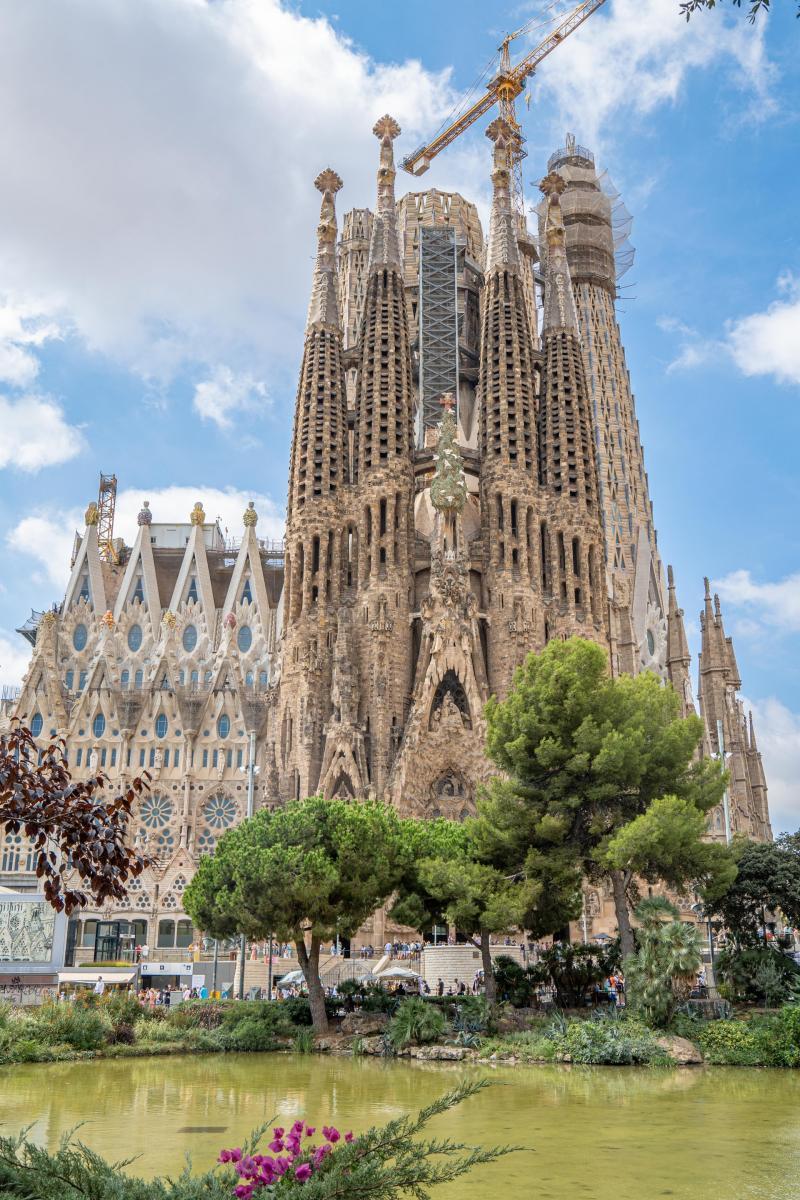
6. Spain was one of the first adopters of wind-powered energy
The windmills of Consuegra are very famous for having appeared in the novel “Don Quixote”. That was a very early use of wind by the Spanish people.
Today, they receive a fifth of their energy from wind sources, and thus proved to all other European countries that wind energy is viable.
7. Spain occupies almost 95% of the Iberian Peninsula
There are three major peninsulas in southern Europe: the Balkan, the Italian and the Iberian. The latter is the westernmost of them.
It reaches France through the Pyrenees, and Africa through Tarifa and the Strait of Gibraltar. In this peninsula, Spain occupies almost 95 percent of the area, though Portugal does not seem that small.
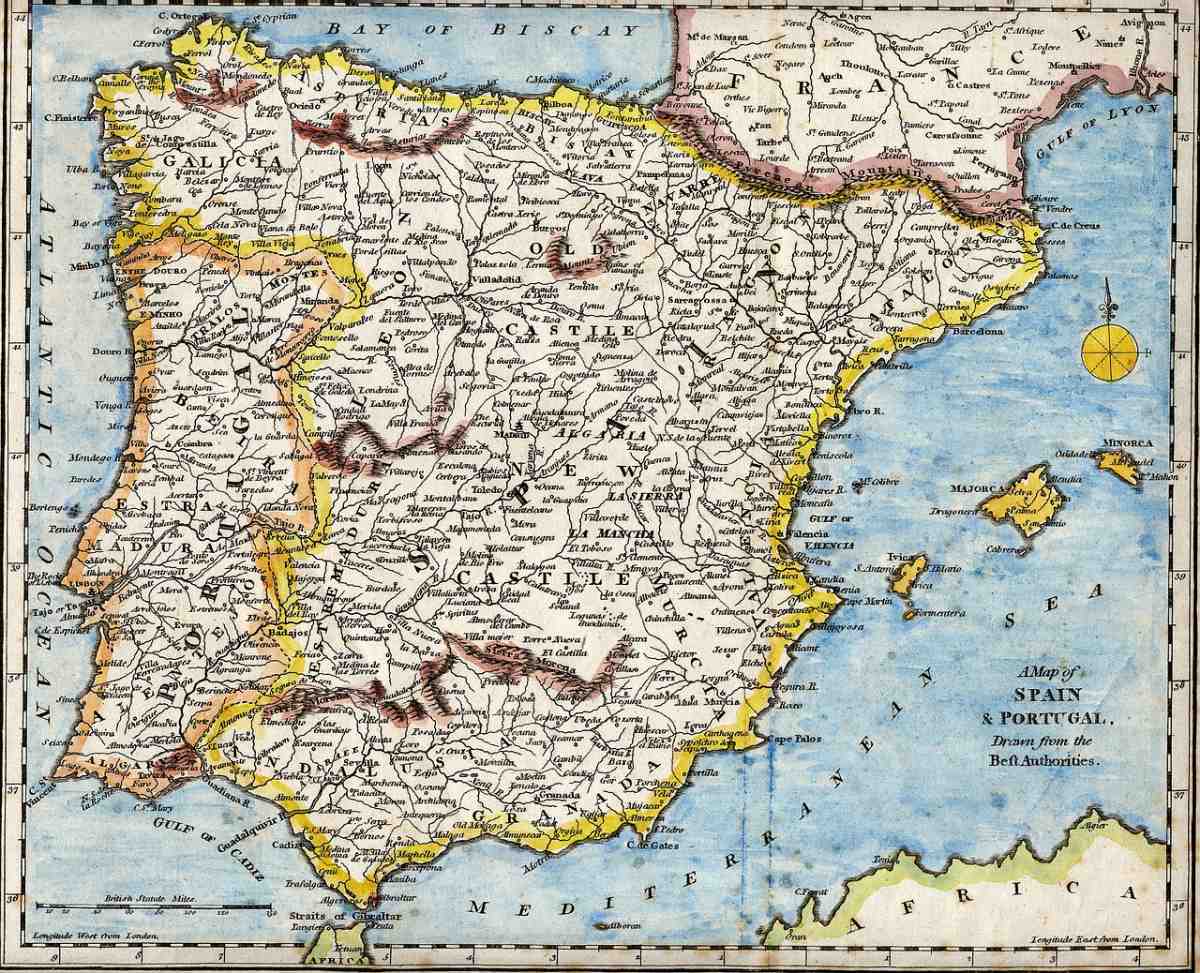
8. Spain is the only country in Europe with cities outside of Europe
There are only two European cities that are physically outside of Europe, and they both belong to Spain. Ceuta and Melilla share soil with the Moroccan border, on the Mediterranean coast.
There is nothing very interesting to see there, but the cities are at the center of controversy for the huge immigration waves passing through them every year.
9. Flamenco was created in Spain
Dancing is a very important part of Spanish culture. In most traditional events, mostly festivals, there is always at least a little bit of dancing involved.
The most famous of them all, flamenco, was created in Spain. It is a sensual and passionate dance, and is popular worldwide (even the Apple emoji dancing girl wears a flamenco dress!). The Flamenco Madrid Festival is one of the biggest events held in the capital city and you should definitely put it on top of your Spain bucket list.
10. There is a unique tradition in Spain: La Tomatina
Every country has their own traditions, but Spain has some very intriguing and weird ones. This one is one of the funniest ones, though.
La Tomatina takes place in Buñol every year, in August. More than 20,000 attendees take part in the biggest tomato fight in the world for the whole day. What’s most surprising is that it’s a religious celebration!
11. Spain is an pioneer in terms of literature
Some Spanish writers are definitely visionaries. The oldest preserved poem comes from Spain, and it is called “El Cantar del Mío Cid”. It tells the story of the Reconquista, and is very popular.
Another very famous writer is Miguel de Cervantes, author of the epic novel “Don Quixote de la Mancha”.
12. Lots of prehistoric drawings are located in Spain
The Iberian Peninsula has definitely played a very important role in the old world’s history. Today, you can still find several prehistoric drawings there.
The most famous of them is the Altamira cave, and is located near Santander, Cantabria. This cave is very impressive and gathers a lot of various ancient and epic drawings.
13. Both Spanish and Italian kids get most of their Christmas presents on January 6th
In Spain and in Italy, Christmas is a bit different than in most westernized countries. Most of the gifts are actually given on January 6th instead of Christmas, to celebrate the Epiphany and the Wise Men.
This time of the year is usually very important and intense in both countries, and is synonymous with family reunion and celebration.
14. The mop was invented in Spain
Manuel Jalón Corominas was a Spanish air force officer and an inventor. While he lived in the US, he saw how hangars were cleaned and came back to Spain with the idea of the current day mop. He quickly started its manufacture with a new design, adapted to the Spanish market.
Corominas is also known for having improved the disposable syringe.
15. Spain is reputed for lots of its festivals
You have already heard of La Tomatina before, but Spain is definitely reputed for lots of its weird and astonishing festivals.
It is said that there is always at least one festival going on somewhere in Spain, at any time. Everything can happen in parties in Spain, from bulls to babies, and from devils to coffins!
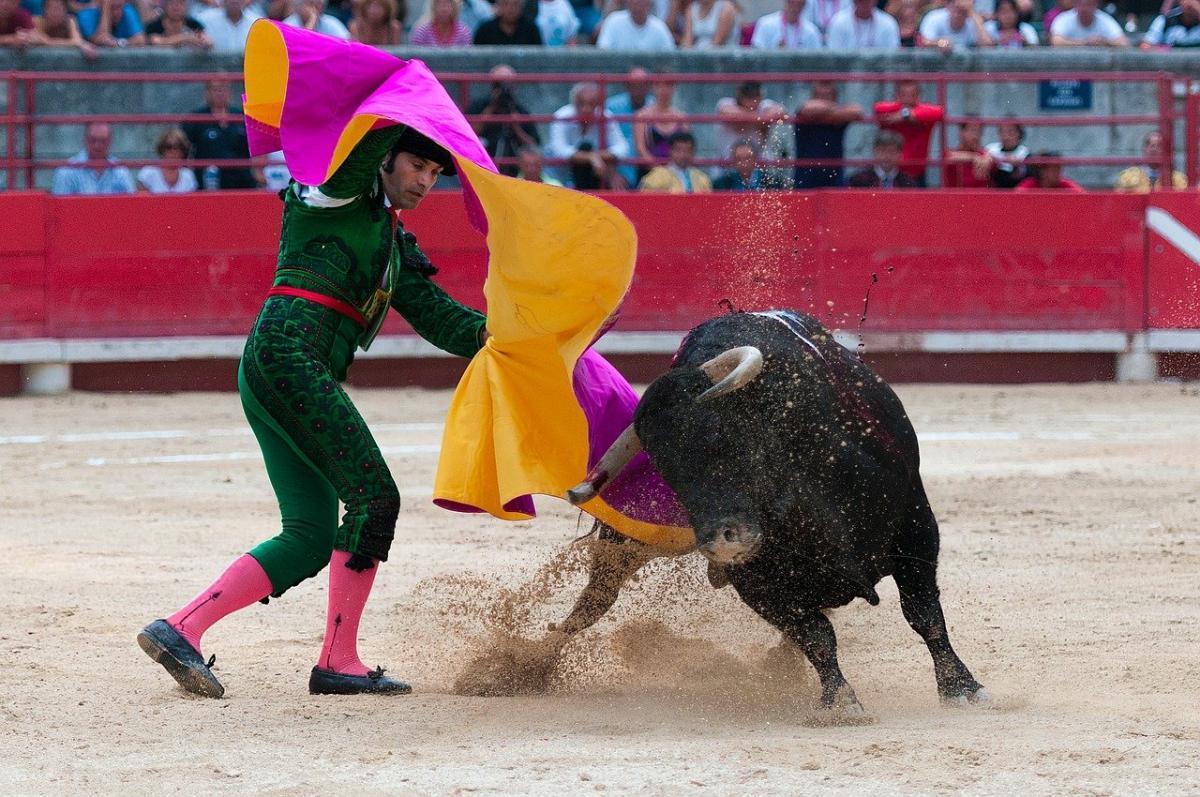
16. The first modern novel comes from Spain
“Don Quixote de la Mancha” by Miguel de Cervantes is actually more important than you think.
Not only is this epic novel of worldwide renown, but it is also the first ever modern novel! It depicts the story of a noble and his various adventures.
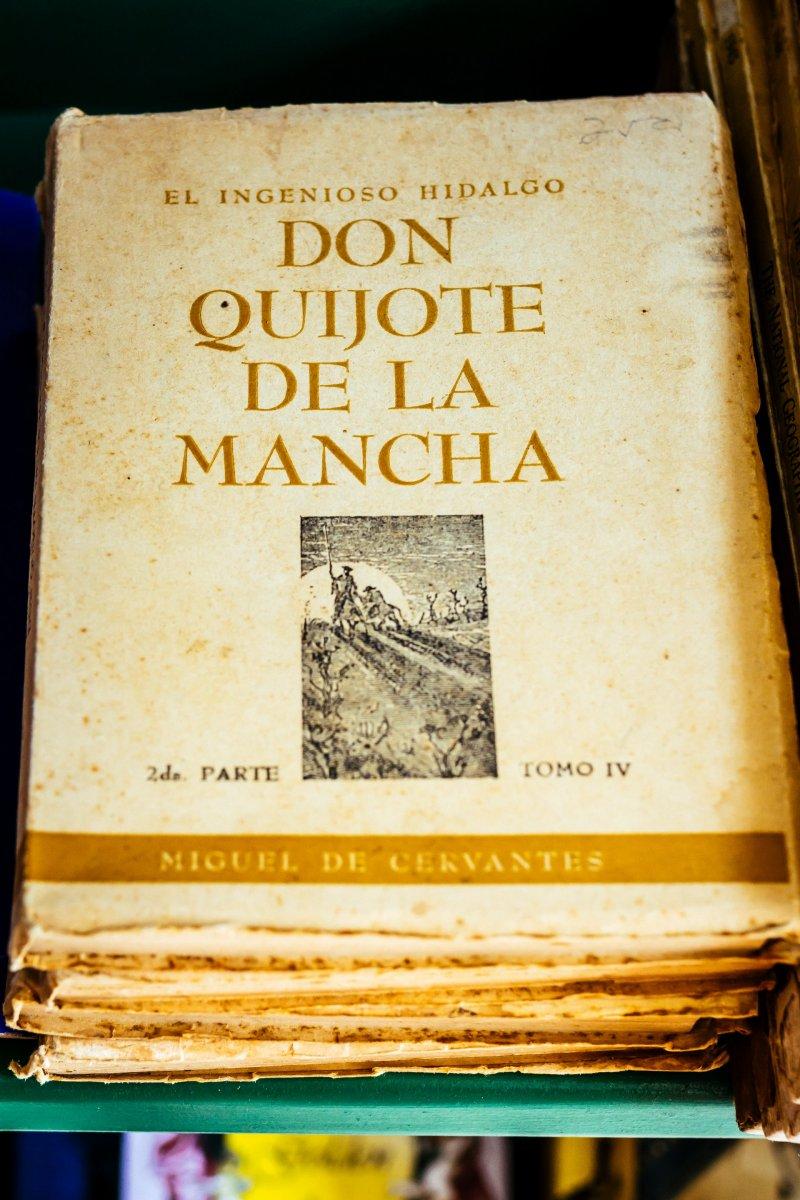
17. Nearly half of Spain is covered by vegetation of some sort
Only a small portion of Spain is classified as dense woodland, mostly in the mountains. However, nearly half of the whole country is covered by vegetation.
The most common trees are pines and oaks. Since the 19th century, there is also poplar and eucalyptus, more and more widespread.
18. Madrid is literally the center of Spain
Madrid is the capital of Spain, and it is located at the center of the country, you already know that.
However, what you might not know is that it is literally the geographical center of Spain. Every major Spanish highway starts in Madrid, at kilometer 0: the “Puerta del Sol”.
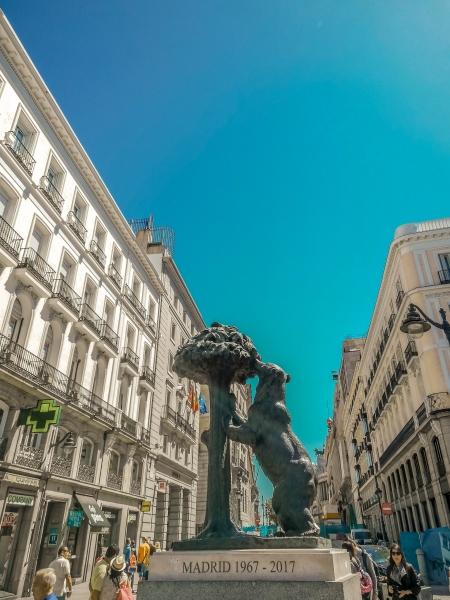
And that’s it for the most general facts about Spain. There were 18 of them, but there are still a lot to go. First off, the fun facts:
Fun Facts of Spain
This first specific part will be about the most fun and unusual facts about Spain. Let’s dive into it:
19. It is legal to go nude in Spain. Not recommended, but possible!
I’m not going to lie, it does not happen very often that people walk around without clothes in Spain. However, it is legal to do so!
This is probably due to the weather, extremely hot and dry in the Iberian Peninsula. Being able to go nude is definitely one of the most unique and surprising about Spain.
20. Spanish people drop their napkin when they want to show they loved their meal
This might seem paradoxical, but the dirtier a Spanish bar is, the more successful it is. Spaniards drop their napkins to show they enjoyed their meal.
Not only that, but they also drop anything on the floor, like shells or olive pits. This is an easy way for anyone to spot the most successful places: just look at the floor!
21. The Spaniards have a high average life expectancy
Spanish people live longer than their neighbors, usually. Their average life expectancy is 84 years. Women live on average for almost 87 years, while men live for more than 81 years.
This is actually one of the highest life expectancies in the whole world, Spain being 7th on the rankings. The first one is Hong Kong.
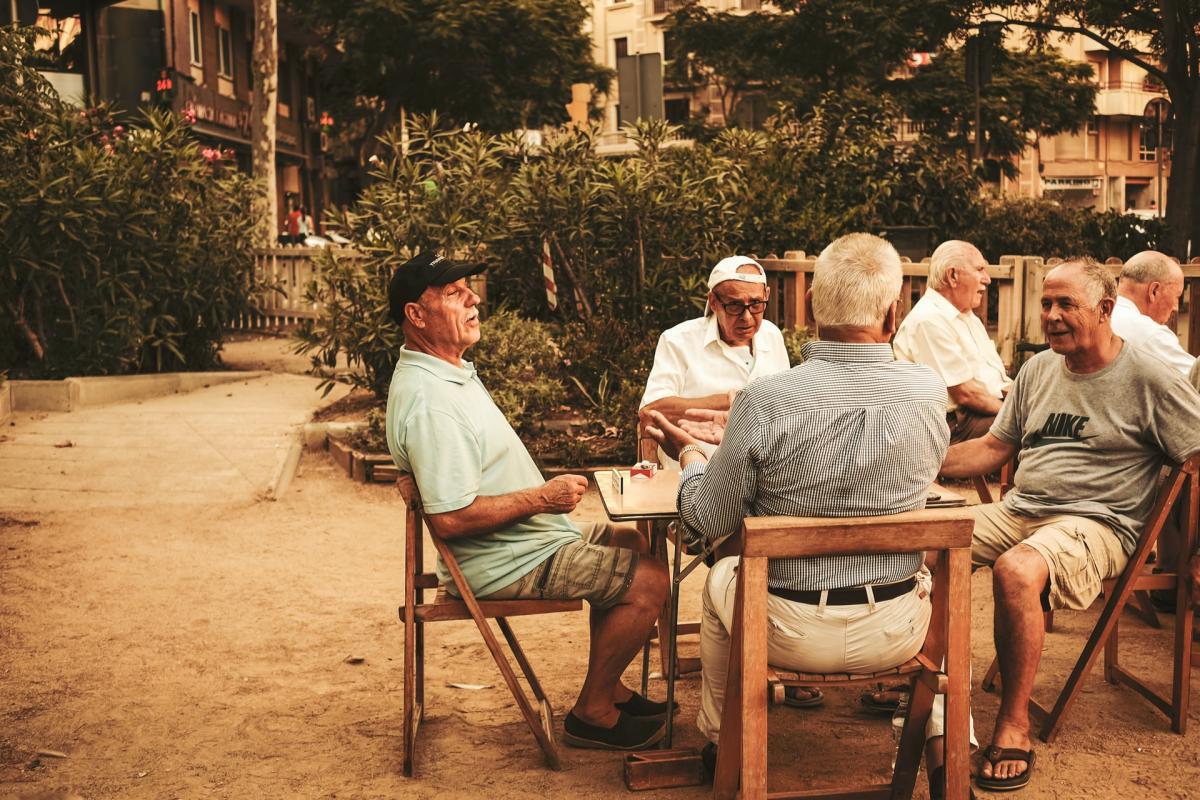
22. The Tooth Fairy is different in Spain compared to most countries
While most countries use the character of the Tooth Fairy for children, in Spain it is different. There is no fairy but… there is a rat.
“Ratoncito Perez” is the one taking kids’ teeth, and giving them presents (instead of money for the Tooth Fairy).
23. Lots of Spanish people have two surnames
The average person in Spain has two surnames. They keep both the surnames of their fathers and mothers, in order to honor both of them. This construction seems a bit weird to most people.
As an example, Pablo Picasso’s actual name is Pablo Ruiz Picasso, and Salvador Dalí’s is Salvador Dalí i Domènech.
24. Chocolate exists in Europe thanks to Spain, just like oranges or potatoes
The colonies established by Spaniards in South America are even more important than you think. They gave Europe some of the most common resources, like oranges and potatoes.
Were it not for Spain, which brought cocoa back to the country, there would not be any chocolate in Europe!
So there you have them, the 6 fun facts about Spain. The next part will be about facts for kids about Spain.
Spain Facts for Kids
While all of the facts listed above are obviously safe for kids, this section is especially dedicated to satisfy the curiosity of the young ones:
25. Spanish is one of the most spoken languages in the whole world
There are over 500 million people speaking Spanish worldwide. It is the second most spoken language in the world.
Spanish is not spoken only in Spain, obviously, but also in tons of American countries, like Mexico, Cuba, Argentina and Colombia. The language is official in 20 countries.
Read more: Learn more about the Spanish language
26. There is still a monarchy in Spain, like in England or in the Netherlands
Nowadays, there are not that many monarchies in the major countries worldwide. Some of them include the United Kingdom, the Netherlands, and Spain.
In Spain, the title is only honorary, as it is a constitutional monarchy, and the country is ruled the same way as most western countries. The current ruler is King Felipe VI, who came to power in 2014.
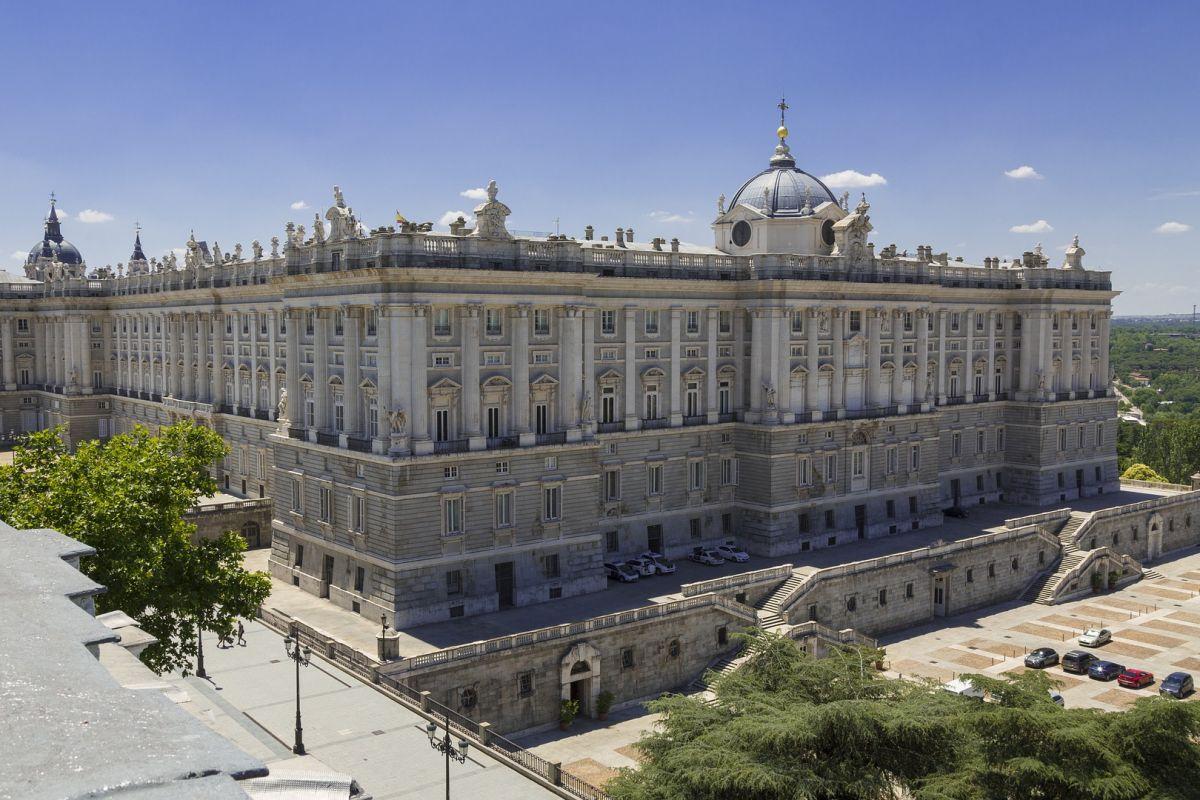
Palacio Real in Madrid
27. The capital of Spain, Madrid, is one of the largest cities in Europe
There are more than 3 million inhabitants in the capital of Spain, Madrid. It is the second most populous city in the European Union since London and the United Kingdom left.
There are tons of things to do in Madrid, from museums to very active nightlife: tourists love this destination.
28. Spain is the least densely populated country in Europe
Spain’s landscapes and nature are simply wonderful. From pristine sand beaches to snowy mountains, you can find what you love the most in the Iberian Peninsula.
There are actually so many wild areas that Spain is the least densely populated country in Europe!
29. The highest Spanish mountain is not in continental Spain
Most of Spain’s colonies took their independence throughout the centuries, but some of them are still under Spanish rule.
One of them is the Canary Islands. There, you can find Mount Teide, the highest Spanish mountain (3,718 m / 12,198 feet), and it is an active volcano. Because of its eruptions, the beaches there are black!
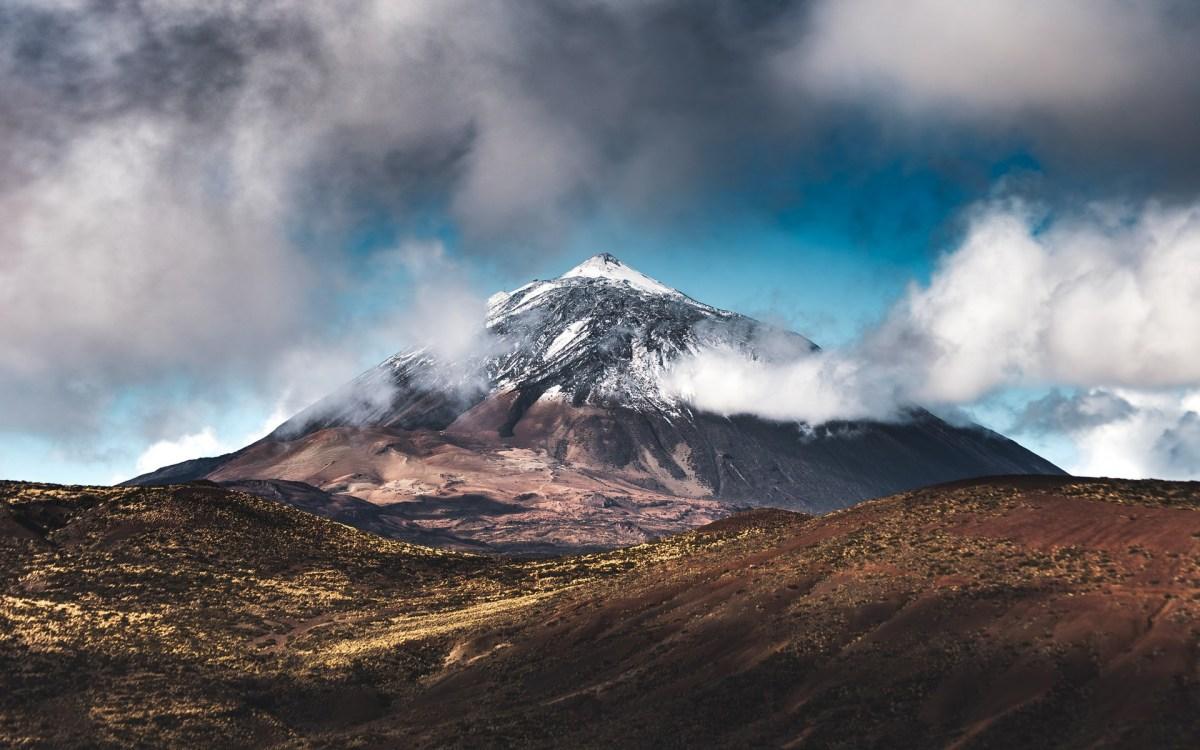
Mount Teide
30. There are 5 other official languages in Spain, alongside Spanish
While Spanish is obviously the most spoken language, there are 5 other dialects or official languages considered as Spain’s co-languages.
The most famous one is Catalan, with almost 10 million speakers. The other 4 are Valencian, Galician, Basque and Aranese. Don’t worry though, everyone understands Spanish, though some regions insist on speaking their local tongue.
That’s all I have for the facts on Spain for kids! There are still lots of facts for you to discover though, and the next ones are about Spanish culture:
Spain Culture Facts
Such a historical and old country must have very unique cultural facts. I have cultural facts about Spain to talk to you about:
31. The legal marriage age used to be 14 in Spain before 2015, the lowest one in Europe
This might be shocking to you, as it will be for most countries, actually. Before 2015, Spain had the lowest legal marriage age: only 14 years old! Since then, you need to be 16 years old to get married.
The legal age of consensual sex used to be only 13 years old, but since 2015 it has come in line with other European countries, with 16 years old.
32. Many of the world’s most famous painters were Spanish
Writers have already been in the spotlight in an earlier fact, but Spain also has some of the most talented painters in history.
The most famous of them are Pablo Picasso, Salvador Dalí and Francisco Goya.

Salvador Dali’s mask
33. In Spain, people devote a lot of time to rest and recreation: 16 hours per day!
It is an important part of Spanish culture to devote as much time as possible to rest and recreation. A 2013 report showed that on average, 16 hours a day are given by Spaniards to relax!
In North America, people usually work from 10 to 12 hours a day, which probably means they are jealous of Spain’s philosophy.
34. Siestas are sacred in Spain, especially in Madrid
Another cultural fun fact about Spain is that they often take a nap, so much in fact that they are almost sacred.
Many businesses and restaurants are closed for a huge part of the afternoon, for everyone to take a nap. Madrid is the most famous of the cities that is very devoted to good naps!
35. Religion and culture are closely intertwined in Spain
You have probably already noticed it, but religion is very important in Spain. Most Spaniards are Catholic, and the most important festivals and holidays are usually related to religion.
Also, most architectural masterpieces like the Sagrada Familia or the Catedral de Sevilla are obviously dedicated to religion.
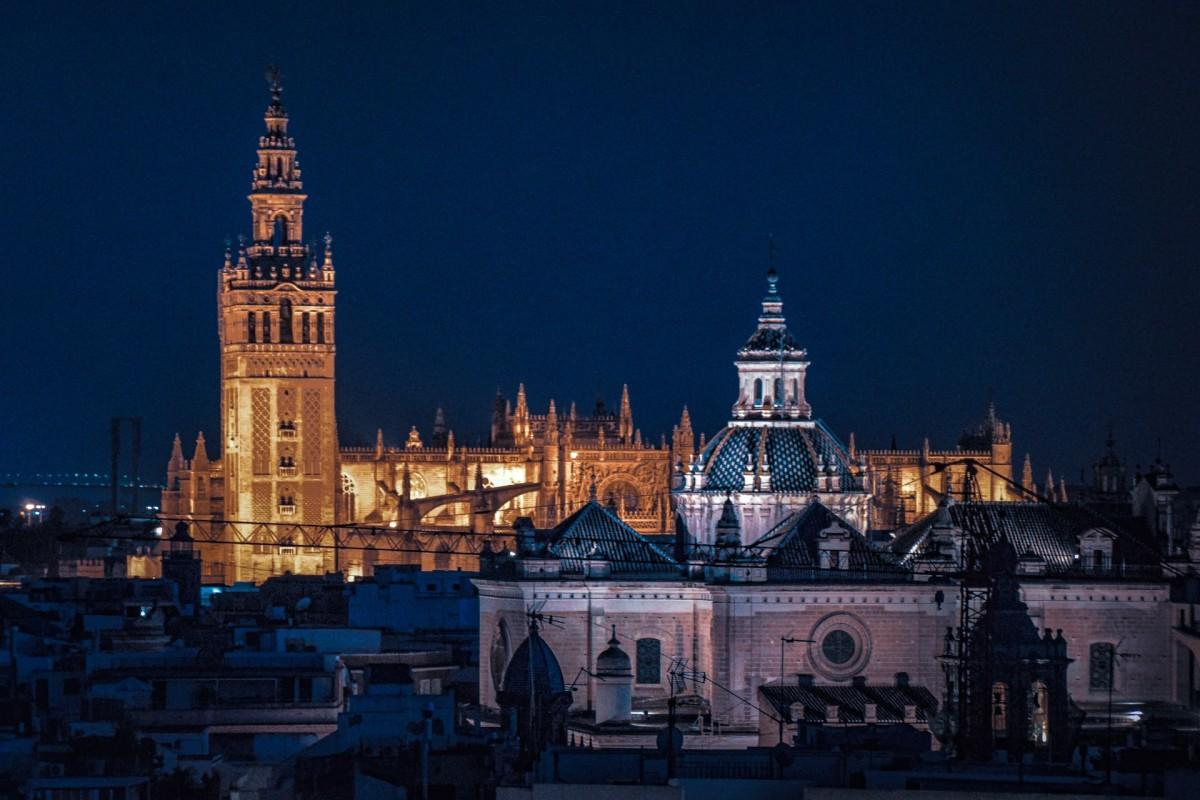
Seville Cathedral
36. Spain has strict food ordering schedules
Spanish people usually eat very late, mostly because of the hot weather as well as the sacred naps. Thus, there is a strict window for you to order food, and the most famous dishes like tapas and paella are served at very specific times. Be ready!
Read more: Learn more about Spanish food
I hope you learned more thanks to these facts about Spain culture! Then, there are still a whole lot of historical facts:
Facts About Spain History
Again, Spanish has a huge influence in Europe, in terms of religion and history. Up next, I have 6 historical facts to detail:
37. Spain was not involved in either World War I or World War II
Both 20th century’s World Wars are infamous for decimating millions of people from major countries.
What might come surprising to you however is that Spain, one of the major Western countries and historically a very warlike state, wasn’t involved in either of them. Their leaders were aligned with the Axis’ ideas, but Spaniards stayed out of the fights.
38. The Romans left a very important heritage in Spain
Many cultures like the Moors and the Visigoths have influenced Spain, but the Romans were the one starting it all.
They conquered the land and settled there for a very long time. Their most important contribution is definitely the import of Latin, the source of the Spanish language.
39. The Moors have also had an extremely huge influence on the development of Spain
The Moors brought a different kind of important improvement to Spain.
Their most notable contribution is the architecture, most seen in Andalusia, especially in Granada. They also hugely contributed to the development of agriculture in the Iberian Peninsula, and Arabic is still somewhat recognizable among nowadays Spanish words.
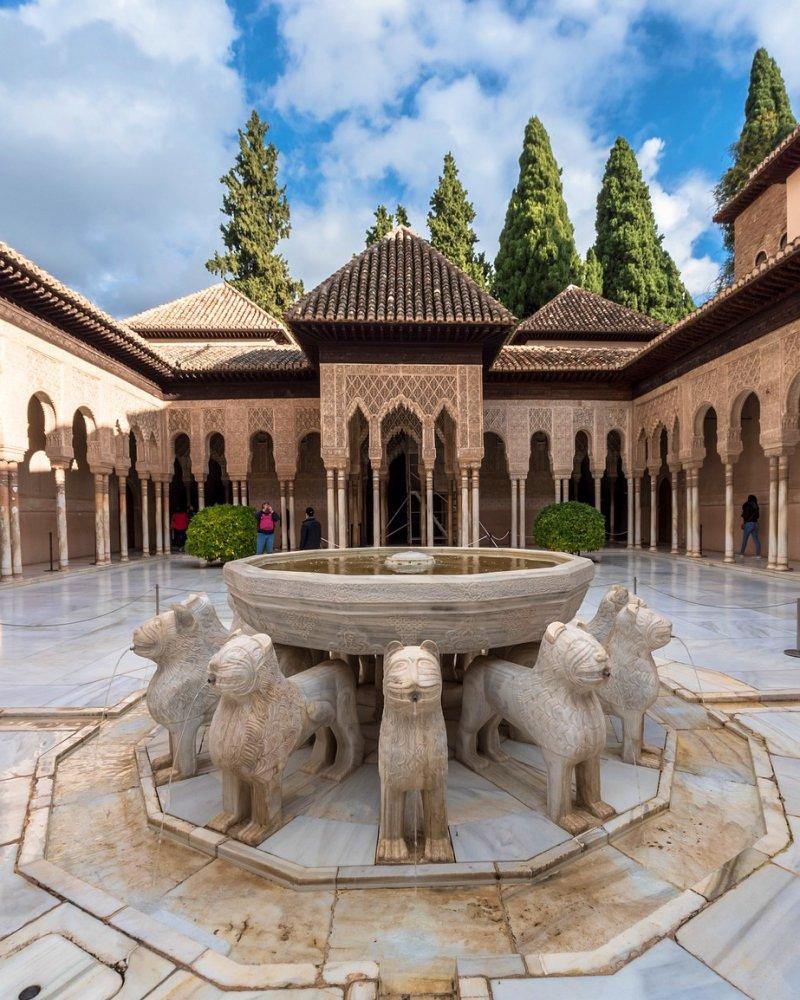
Alhambra in Granada
40. Christopher Columbus started the long list of Spanish explorations and conquests
Spain is historically one of the most important countries in terms of colonies. They were the first one discovering the Americas, with Christopher Columbus in 1492, and have conquered almost half of it.
Columbus reached the New World with his three famous ships, the Niña, the Pinta, and the Santa Maria.
41. Spain was ruled by a dictatorship for almost 40 years
Francisco Franco is an infamous dictator from the 20th century. He took control of Spain in 1936 and ruled it for almost 40 years until his death in 1975.
Lots of things like the Catalan language were either restricted or banned during this period, and the country has seen a true revival since 1975, and is slowly but steadily recovering from this harsh period.
42. An important Civil War took place in Spain during the 1930s
Franco led the rebels during the 1930s, ultimately taking control of the whole country. Before that, there was the Spanish Civil War. It lasted 3 years, until the beginning of World War II. Many atrocities occurred on both sides, like mass executions for instance.
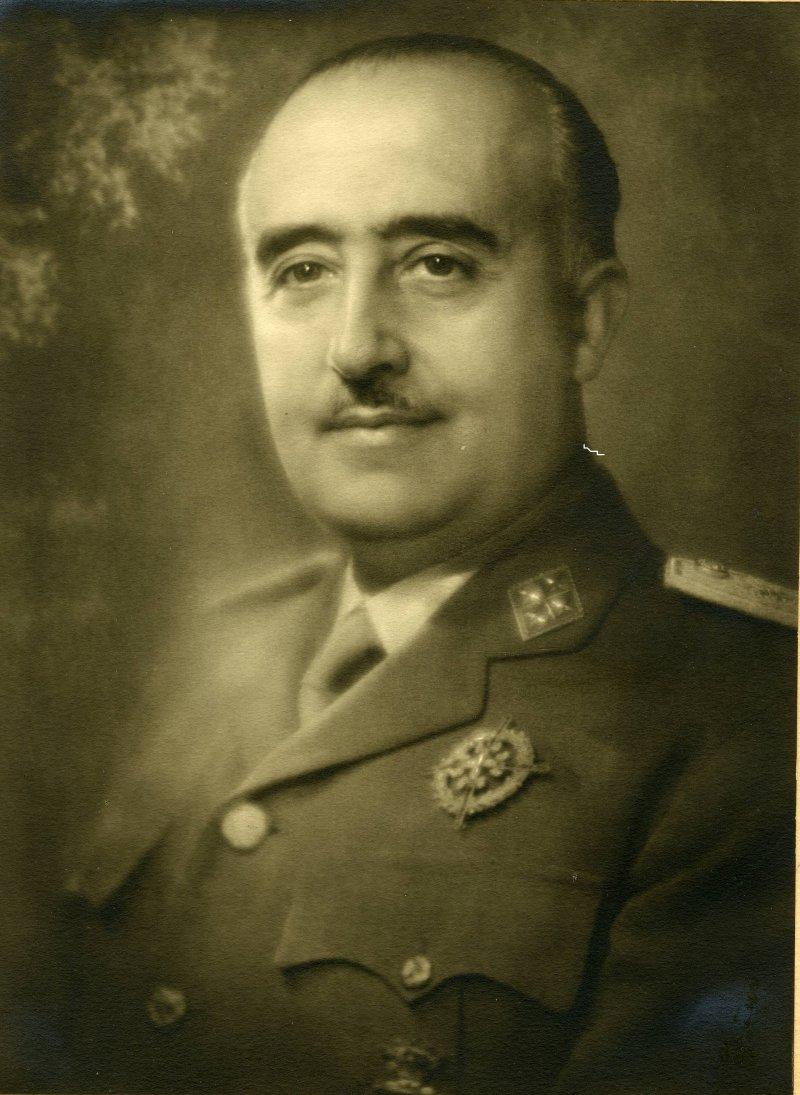
Francisco Franco, dictator of Spain from 1939 to 1975
And that’s it for the historical facts about Spain! Onto the short sections now, the first of them being about weird facts:
Weird Facts About Spain
This is the section I love the most. Below, you can find 6 very weird facts about the country of Spain:
43. Spanish people are easily recognizable because they tend to speak very loudly
44. The Spaniards love to burn stuff, like very big quantities of dried wood
45. Almost everyone in the countryside is called either Paco, Pepe or Javi
46. There is a festival in Spain where people dress up as devils and jump over recently born babies to cleanse them of original sin
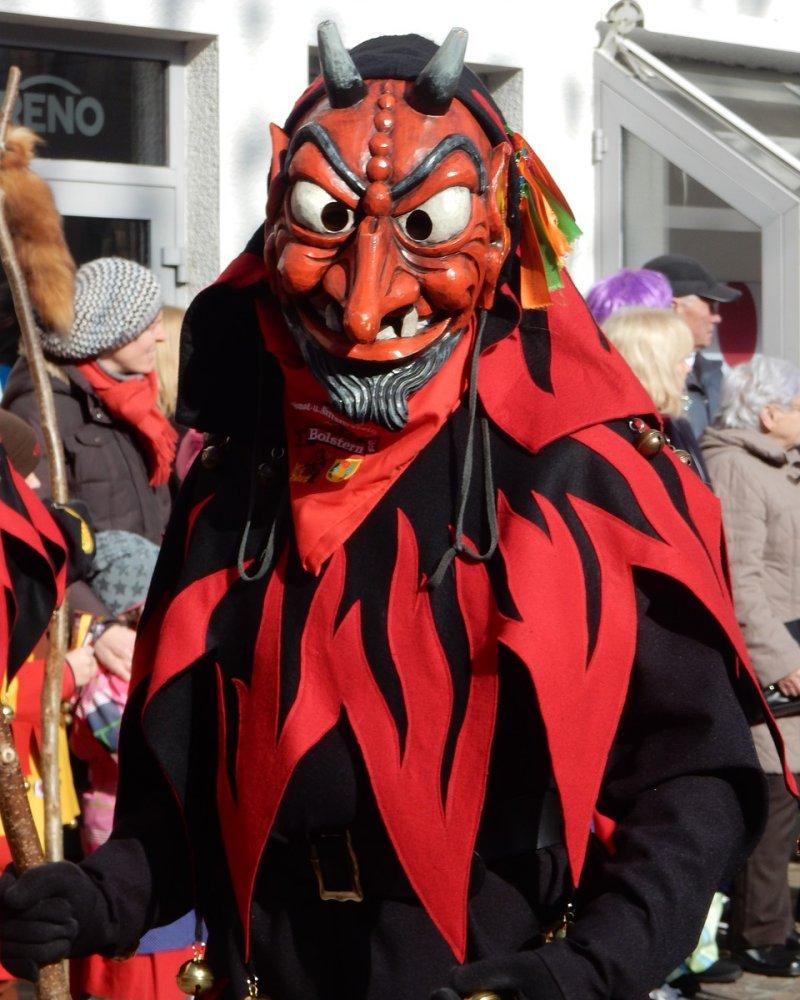
47. Spanish drivers rarely respect the laws of driving, in fact you have to be very careful there
48. Spain is famous for not speaking much more than its own language in general
Geography of Spain Facts
Here are 6 quick facts about the geography of Spain:
49. There are 4 major mountain ranges in Spain: Pyrenees, Sierra de Guadarrama, Sierra de Gredos and Sierra Nevada
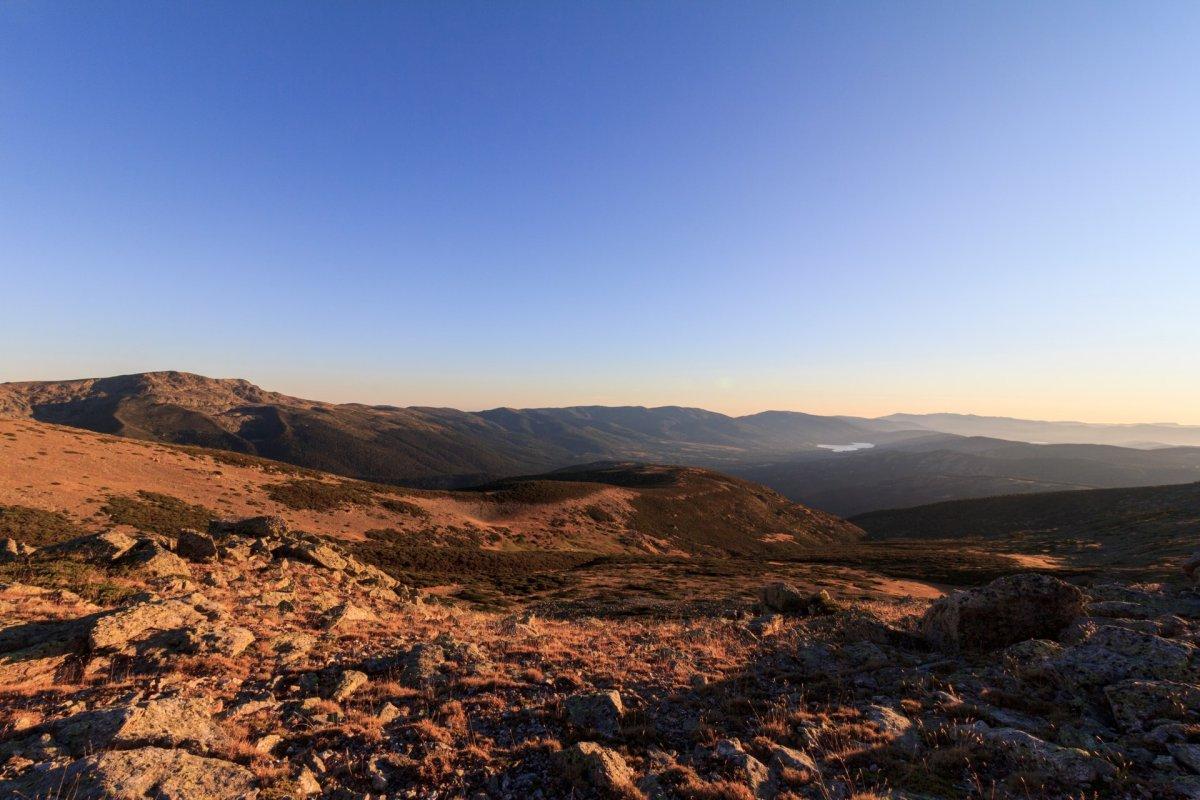
Sierra de Guadarrama
50. Temperatures in the southern and eastern coasts are very mild because of the sirocco winds
51. The northwestern coast of Spain is called “Green Spain” because plants and trees grow very well there
52. The interior of Spain consists of a high and very dry plateau surrounded by mountain ranges
53. Spain also rules two cities in North Africa as well as the Canary Islands
54. Andalusia, the southernmost region of Spain, is reputed to be extremely fertile, and lots of fruits grow there
Economic Facts About Spain
Let’s talk a bit about the economy of Spain with those 6 quick facts:
55. Spain is Eurozone’s 4th largest economy
56. The Spanish government is huge and costs a lot of money
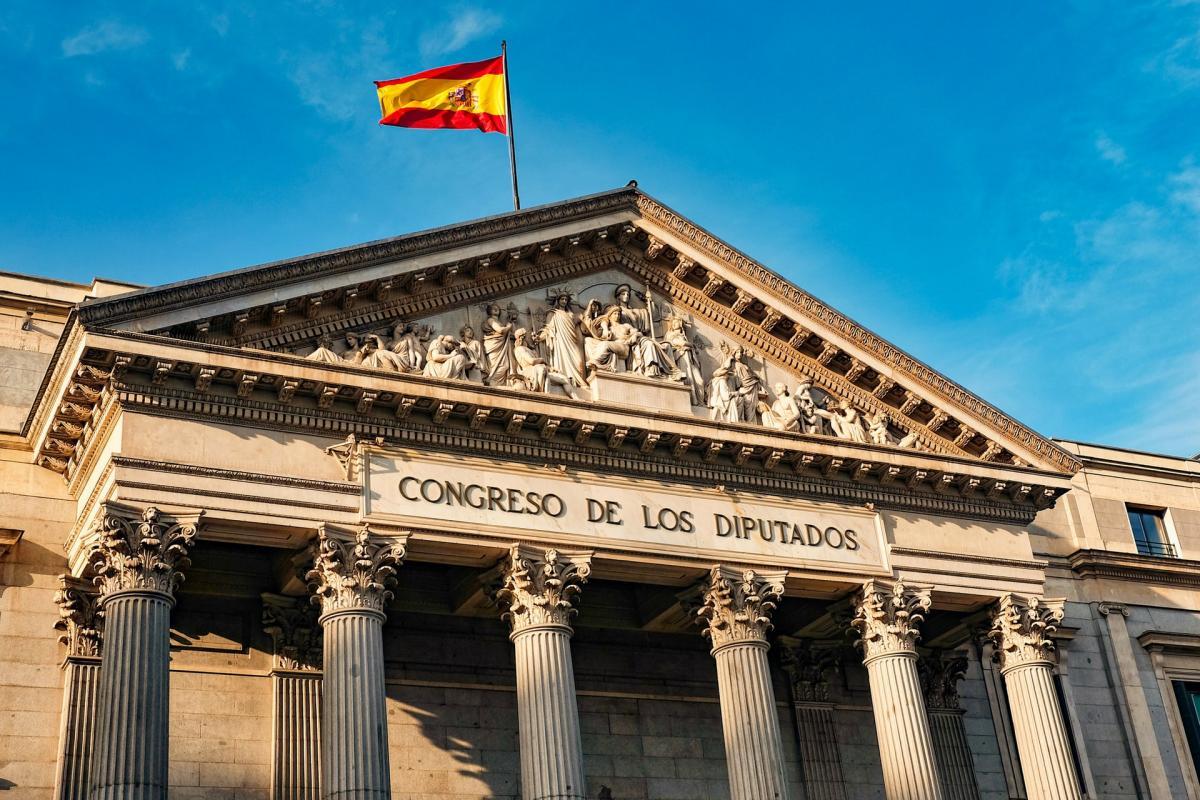
57. There are more than 13 percent of unemployed people in Spain
58. There is less and less unemployment in Spain, there used to be an unemployment rate of more than 26 percent in 2013
59. Lots of structural reforms were necessary to improve Spanish economy
60. Spain’s GDP is projected to grow by a lot in the upcoming years
And that’s it for all the 60 cool facts about Spain and the fun facts, I hope you enjoyed this list! If you want to learn more general information about the country as well as its most famous cities, feel free to keep reading:
General Facts of Spain
You’ll find below a few general facts of Spain, to learn more about this European country:
- Name: Spain (English) / España (Spanish)
- Land area: 505,990 km² / 195,360 sq mi
- Population: 47,450,000
- Name of inhabitants: Spanish / Spaniard
- Website: Spain
Spain Flag
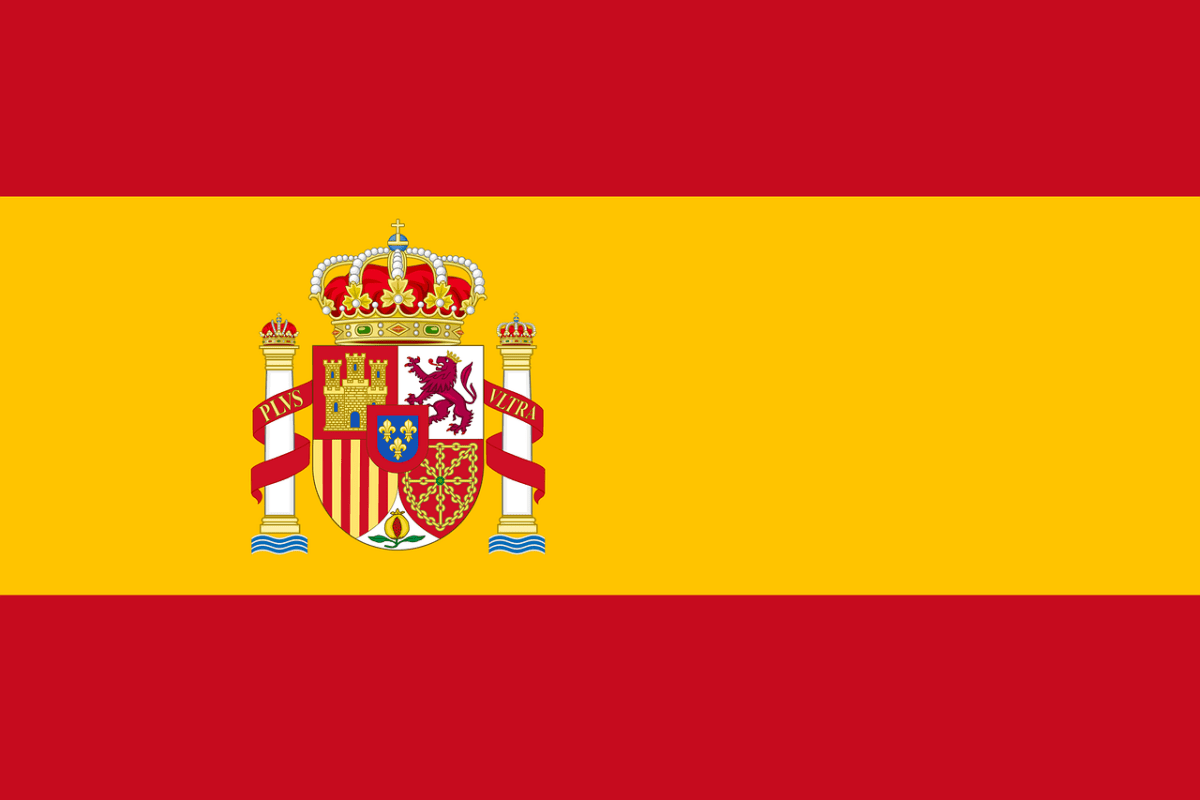
More Facts!
Do you want even more facts about Spain?
Well, I have more facts about Spain, I’m sure you’ll love reading them!
Check out these facts by city/region:
- Facts about Madrid
- Facts about Catalonia
- Facts about Bilbao
- Facts about Barcelona
- Facts about Seville
- Facts about Malaga
- Facts about Granada
- Facts about Valencia
- Facts about Castilla la Mancha
Or these Spain facts by topic:
- Facts about Christmas in Spain
- Facts about la Semana Santa in Spain
- Facts about religion in Spain
- Facts about Spanish food
- Facts about the Spanish language
- Facts about bullfighting in Spain
- Facts about sports in Spain
- Facts about music in Spain
- Facts about schools in Spain
Or click here to see ALL the facts up on the blog! Spoiler alert: there’s A LOT of them.
The Full List of 60 Spain Facts
- Spain is the second biggest country in the European Union
- More than a third of the world’s olive oil is produced in Spain
- Football is extremely popular in Spain
- The vast majority of Spanish people are Catholic
- Spain almost has the highest number of UNESCO World Heritage Sites in the world
- Spain was one of the first adopters of wind-powered energy
- Spain occupies almost 95% of the Iberian Peninsula
- Spain is the only country in Europe with cities outside of Europe
- Flamenco was created in Spain
- There is a unique tradition in Spain: La Tomatina
- Spain is an pioneer in terms of literature
- Lots of prehistoric drawings are located in Spain
- Both Spanish and Italian kids get most of their Christmas presents on January 6th
- The mop was invented in Spain
- Spain is reputed for lots of its festivals
- The first modern novel comes from Spain
- Nearly half of Spain is covered by vegetation of some sort
- Madrid is literally the center of Spain
- It is legal to go nude in Spain. Not recommended, but possible!
- Spanish people drop their napkin when they want to show they loved their meal
- The Spaniards have a high average life expectancy
- The Tooth Fairy is different in Spain compared to most countries
- Lots of Spanish people have two surnames
- Chocolate exists in Europe thanks to Spain, just like oranges or potatoes
- Spanish is one of the most spoken languages in the whole world
- There is still a monarchy in Spain, like in England or in the Netherlands
- The capital of Spain, Madrid, is one of the largest cities in Europe
- Spain is the least densely populated country in Europe
- The highest Spanish mountain is not in continental Spain
- There are 5 other official languages in Spain, alongside Spanish
- The legal marriage age used to be 14 in Spain before 2015, the lowest one in Europe
- Many of the world’s most famous painters were Spanish
- In Spain, people devote a lot of time to rest and recreation: 16 hours per day!
- Siestas are sacred in Spain, especially in Madrid
- Religion and culture are closely intertwined in Spain
- Spain has strict food ordering schedules
- Spain was not involved in either World War I or World War II
- The Romans left a very important heritage in Spain
- The Moors have also had an extremely huge influence on the development of Spain
- Christopher Columbus started the long list of Spanish explorations and conquests
- Spain was ruled by a dictatorship for almost 40 years
- An important Civil War took place in Spain during the 1930s
- Spanish people are easily recognizable because they tend to speak very loudly
- The Spaniards love to burn stuff, like very big quantities of dried wood
- Almost everyone in the countryside is called either Paco, Pepe or Javi
- There is a festival in Spain where people dress up as devils and jump over recently born babies to cleanse them of original sin
- Spanish drivers rarely respect the laws of driving, in fact you have to be very careful there
- Spain is famous for not speaking much more than its own language in general
- There are 4 major mountain ranges in Spain: Pyrenees, Sierra de Guadarrama, Sierra de Gredos and Sierra Nevada
- Temperatures in the southern and eastern coasts are very mild because of the sirocco winds
- The northwestern coast of Spain is called “Green Spain” because plants and trees grow very well there
- The interior of Spain consists of a high and very dry plateau surrounded by mountain ranges
- Spain also rules two cities in North Africa as well as the Canary Islands
- Andalusia, the southernmost region of Spain, is reputed to be extremely fertile, and lots of fruits grow there
- Spain is Eurozone’s 4th largest economy
- The Spanish government is huge and costs a lot of money
- There are more than 13 percent of unemployed people in Spain
- There is less and less unemployment in Spain, there used to be an unemployment rate of more than 26 percent in 2013
- Lots of structural reforms were necessary to improve Spanish economy
- Spain’s GDP is projected to grow by a lot in the upcoming years
Share the knowledge! Click on the buttons below to share these facts with your friends, and help them learn more about the world 🙂
Pin this to Pinterest!
Enjoyed this guide? Then help a fellow traveler and pin it! They'll most definitely love you for it, 100% guarantee.
